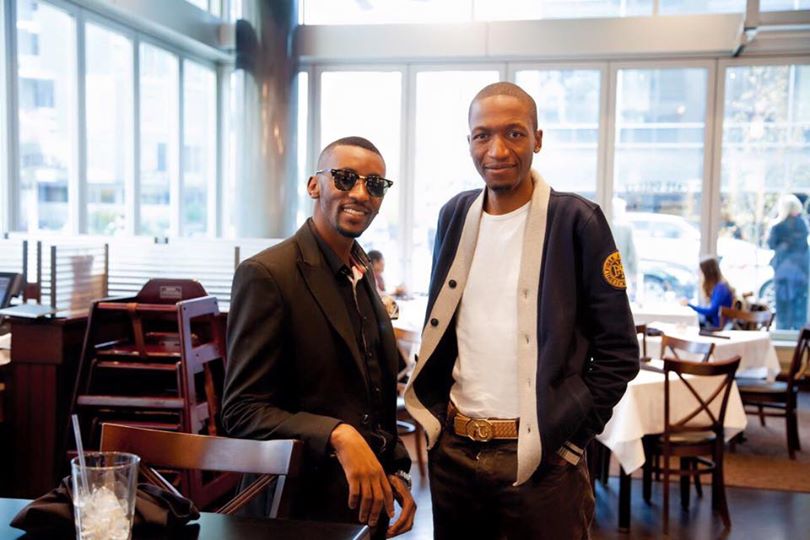| By Mutumwa Mawere
A DISPUTE appears to have arisen regarding the legal status of the 6th Zanu PF congress with former Secretary of Administration, Hon. D. Mutasa, maintaining that the gathering and resolutions passed are of no force and effect and Hon. SK Moyo, Zanu PF Secretary for Information & Publicity confirming the generally held view that the bus has left the station without a few of its former conductors. It was Jefferson in a letter to James Madison dated 30 January 1787 who said: “I hold it that a little rebellion now and then is a good thing, and as necessary in the political world as storms in the physical.” He went on to further state that: “Unsuccessful rebellions indeed generally establish the encroachments on the rights of the people which have produced them. An observation of this truth should render honest republican governors so mild in their punishment of rebellions, as not to discourage them too much. It is a medicine necessary for the sound health of government.” Although it is politically convenient to describe the actions of former VP Mujuru & Co as some form of rebellion, the fact that the rights of the people fingered have been affected, in the absence of any better explanation, it would be safe for analysts to pause and reflect on the forces at work. Who is the last man standing? It cannot be argued that SK Moyo was the last person to be elected to the position of Chairman of Zanu PF. He is the only Chairman of the party since the Unity Accord to be demoted to the lesser position. His two predecessors were elevated to the position of Vice President. When Zanu PF chose to displace the former Speaker of Parliament, Hon. Lovemore Moyo, SK Moyo was the man chosen for the job on account of his seniority in the party. After the death of former VP John Nkomo, there was a general expectation that SK Moyo would also be promoted. However, he could not automatically assume the position of Vice President as in terms of the party’s constitution, this position could only be filled at an elective congress. His appointment after the 2013 General Elections to the position of Senior Minister by President Mugabe was also an indicator that, in the eyes of President Mugabe, SK Moyo was a senior cadre of the party. The existence of the top four positions in the party being the only positions in the Politburo that only an elective congress could create was common cause. Indeed, President Mugabe was not the only person elected to the position. SK Moyo by virtue of his position in the party was until the 6th Congress, the third most senior person in the party. He was a de facto Vice President and Hon. Mutasa, who as the Secretary of Administration, though unelected, assumed that he was the fourth most senior person in the party.
It seems self-evident from the actions of Mutasa that he has not yet come to terms with the fact that the bus left the station without him. It would appear that he is still in the phase of denial believing that he is still going through a dream. If there was a rebellion as has been suggested, then Mujuru, SK Moyo, Mutasa and presumably Rugare Gumbo can safely be considered to have been part of it simply because they held positions that were wanted by others. There is no doubt that the people who may have opposed the automatic elevation of SK Moyo following the death of Nkomo already had a game plan. What is not clear is whether President Mugabe had any constructive knowledge of the plan, for if he had, he would not have elevated SK Moyo in government. It is also not clear whether the First Lady was part of the plan for if she was she could have played a part in ensuring that SK Moyo was kept outside the government cockpit. It is safe to assume that the elevation of SK Moyo, a person considered to be a political lightweight created its own dynamics including the sense of urgency on the part of the people threatened by the entrenchment of the Gang of Three (Mujuru, SK Moyo, & Mutasa) as the barbarians at the gate. It would be recalled that a dispute arose before the 6th Congress regarding the existence and the role of the Presidium. At issue was whether Mujuru & SK Moyo were members of the Presidium by virtue of their appointment or elections. Although both Mujuru & SK Moyo were elected officials of Zanu PF, a new argument or rebellion ensued on the basis that Zanu PF had only a single driver in the name of President Mugabe and accordingly, the notion of a Presidium was an attempt to diffuse the chain of command in the party and government. The first battle of ideas was won by the people who advocated the concept of a single centre of power as if this was in dispute. In fact, even SK Moyo & Mujuru knew and ought to have known that they served the party at the pleasure of the President. SK Moyo’s career at the top was short-lived and, with his demotion, the post of Chairman as it was known was killed. There is no doubt that the fact that SK Moyo remains in the bus after the storm must be an issue of concern to Mujuru & Co. The facts of this matter would show that Mujuru stood to gain nothing from the so-called putsch but SK Moyo & Mutasa were the real beneficiaries as they stood to be elevated from their positions. The question that will always trouble historians and future generations is the role of Mujuru in the alleged putsch as well as the motivation behind the alleged abortive rebellion. It is not at all self-evident how Mujuru stood to gain by unseating her political mentor and father, President Mugabe, from the position of President of Zanu PF when in terms of the state constitution she served as VP of the country at his pleasure certainly until the next elections. What is clear is that the last man standing stood to benefit tremendously by being elevated to the position of VP. With respect to Mutasa, he owed his position in the party to President Mugabe who appointed him and, therefore, the argument that he has sought to advance after being thrown outside the cockpit could be regarded as hypocritical. One can understand SK Moyo’s state of mind when elected as Chairman and also when VP Nkomo departed. Indeed, he was the most senior person on the ZAPU slate of Zanu PF whereas Mujuru could not make the same argument as she, like her predecessors, understood that as long as the driver was still willing and able to drive, the question of succession was irrelevant. The seniority argument would seem to have been relevant to SK Moyo & Mutasa. What then could have happened to make SK Moyo relevant and the other members irrelevant? In the case of the Tsholotsho debacle, it will be recalled that the last man standing was Hon. Mnangagwa when his presumed team were thrown out of the bus. Even Tsholotsho was described as a rebellion but this would not qualify in the Jeffersonian sense. Mnangagwa’s loyalty to President Mugabe is no different to the enduring loyalty of Mutasa & Mujuru. No one can allege that ideological differences were at play in both the Tsholotsho and Mazoe Crush events. What Zanu PF has missed are real rebellions of ideas on how to advance the cause of human progress and prosperity in Zimbabwe and more significantly the role of the state in building a prosperous, inclusive and cohesive nation-state. Apart from loyalty to the leader, it is not clear what differences, if any, exist between the worldview of Mujuru, Mutasa & Mnangagwa. Gumbo was thrown out of the bus under the watch of Mujuru & Mutasa. SK Moyo participated in the events that Mutasa now describes as unconstitutional including the suspension of duly elected Chairmen of Zanu PF’s provincial structures. In fact, Mutasa was fixed with the knowledge of what was to happen at the Congress yet took no positive steps to register his new found opposition to the proposals that would have been approved even if he was still in the bus. No suggestion has been made by Mutasa that he believes that if the Congress was to be reconvened that the proposals that were adopted by Congress with the approval of President Mugabe would be overturned. A rebellion is always a good thing if it is principled. However, opportunistic rebellions are never a good thing for the cause evaporates with the accommodation of the personal interests of its practitioners. The events before and after the Congress do not suggest that any rebellion was at play although it cannot be argued that when despotism creeps in, it is always convenient to create a smoke without any fire solely for the purpose of repositioning the political power deck. Mutasa must be alive to the futility of asserting his cause before any court of law in Zimbabwe for he will still have to deal with a bus that has left him at the last station and that has new conductors, albeit with the same driver. SK Moyo, the last man standing, has at last spoken: http://www.herald.co.zw/sk-moyo-breaks-silence-on-mutasa/. One can hardly recognize the new SK Moyo and perhaps Mutasa will be the last one to know who his friends truly are. We now know more about Mutasa’s conduct in government. We also know that the people who are now outside the bus suffer the same fate as any presumed traitor. Jefferson held the view that any honest Republican should not attempt to discourage any rebellions for it is a necessary medicine for the sound health of any party. |






